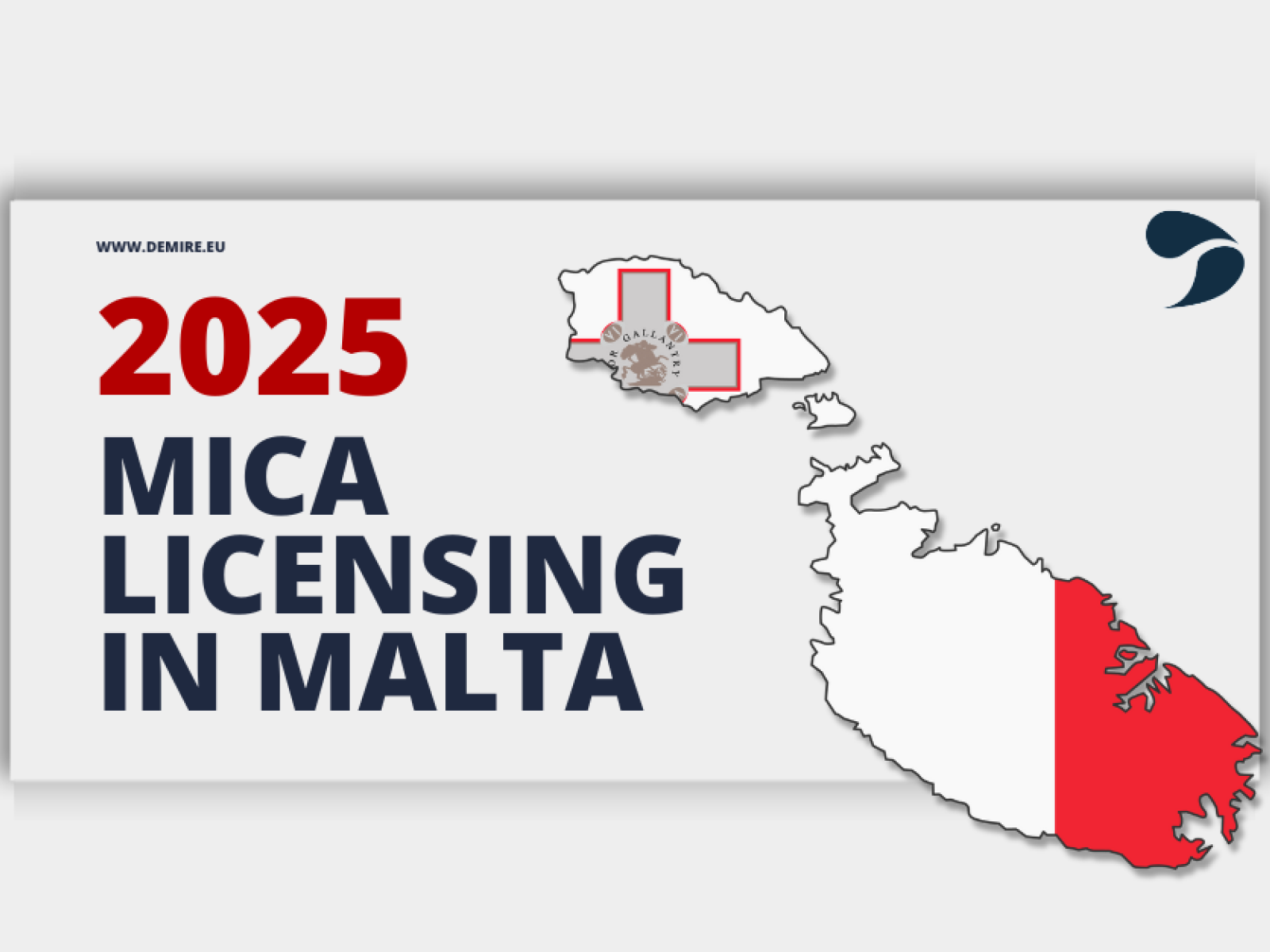MiCA Licensing in Malta (2025): A Comprehensive Guide
2025 04 08The Markets in Crypto-Assets (MiCA) Regulation has introduced a harmonised licensing regime for crypto businesses across the EU. Among all EU Member States, Malta stands out as a pioneer in adopting MiCA swiftly and effectively. With its crypto-friendly ecosystem, experienced regulator, and strategic EU position, Malta offers a compelling destination for crypto-asset service providers (CASPs) seeking to serve the European market.
Why Malta?
Known as the "Blockchain Island," Malta was one of the first countries to regulate crypto services through the Virtual Financial Assets (VFA) Act in 2018. Now, under MiCA, Malta leverages its regulatory maturity and infrastructure to provide:
The Malta Financial Services Authority (MFSA) is the competent authority for MiCA licensing, overseeing application reviews, governance standards, and ongoing supervision. Its track record of engagement with fintech and blockchain projects makes it one of the most experienced regulators in Europe.
Understanding MiCA CASP License Classes
MiCA divides CASPs into three license classes based on the services they offer:
|
Class |
Services Included |
Minimum Capital Requirement |
|
Class 1 |
Advisory, order execution, transfer services, portfolio management |
€50,000 |
|
Class 2 |
Custody, crypto-fiat/crypto-crypto exchange + Class 1 services |
€125,000 |
|
Class 3 |
Operation of a trading platform + Class 1 & 2 services |
€150,000 |
Each license class builds on the previous, allowing broader activities. Class 1 licenses are typically suited for crypto advisors, brokers, and asset managers. Class 2 covers custodians and exchange providers, while Class 3 is geared towards trading platforms.
Applicants must select the license class based on the services they plan to offer. The higher the class, the greater the capital and compliance obligations. Malta’s legal professionals and service providers help businesses choose the appropriate category and prepare the necessary application documentation.
Application Timeline and Steps
Obtaining a MiCA license in Malta involves the following key phases:
1. Company Incorporation (1–2 weeks)
2. Document Preparation (2–4 weeks)
3. Application Submission to MFSA
4. Completeness Check (within 25 working days)
• MFSA verifies the application package is complete
5. Regulatory Assessment (40 working days)
6. In-Principle Approval
• Conditional approval subject to final steps (capital deposit, hires, office setup)
7. Final License Issuance
• MFSA issues final authorization and the business may commence operations
Total estimated duration: 4 to 9 months depending on complexity, response speed, and preparation quality.
Who Should Apply?
MiCA licensing in Malta is ideal for:
Applicants must show:
Transition for VFA License Holders
Firms licensed under Malta’s VFA Act before 30 December 2024 benefit from:
• 18-month grandfathering period (until 1 July 2026)
Continued operations during the MiCA transition
Class 1: €5,000
Class 2: €10,000
Class 3: €12,500
Demire Inc supports existing VFA license holders with roadmap planning, documentation review, and MFSA application updates to ensure smooth MiCA compliance.
Passporting: Access to the EU Market
A major advantage of MiCA is the ability to operate across all EU Member States with a single license from Malta:
There is no need to apply for separate licenses in each country. This saves time, cost, and operational risk while expanding your EU client base.
Malta’s English-speaking environment, efficient MFSA processes, and robust infrastructure make it a natural base for firms targeting Germany, France, Italy, Netherlands, and other major EU markets.
Licensing Costs and Annual Obligations
|
License Class |
Application Fee |
Annual Supervisory Fee |
|
Class 1 |
€10,000 |
€10,000 |
|
Class 2 |
€20,000 |
€25,000 |
|
Class 3 |
€25,000 |
€50,000 |
Additional obligations include:
Malta's Tax and Legal Environment
Malta’s corporate income tax rate is 35%, but non-resident shareholders are eligible for a refund on distributed profits, reducing the effective tax rate to around 5% in many cases.
Other advantages:
These features make Malta not just a licensing hub, but a strategic tax and business base for EU operations.
The Role of Demire Inc
Navigating the MiCA licensing process requires more than legal paperwork. It takes local insight, regulatory strategy, and operational readiness. At Demire Inc, we offer:
Our goal is not only to help you obtain a license but to build a stable and scalable foundation for your EU crypto business.
Ready to Enter the EU Market?
Whether you're a fast-scaling startup or a global crypto firm expanding into Europe, Malta offers an accessible, respected, and well-regulated path to MiCA compliance.
With its mature legal system, responsive regulator, and extensive support services, Malta is the ideal jurisdiction to launch or scale your MiCA-compliant operations.
Demire Inc is your trusted partner in this journey.
Contact us today to start your licensing process and build your next-generation crypto business in the heart of the EU.
